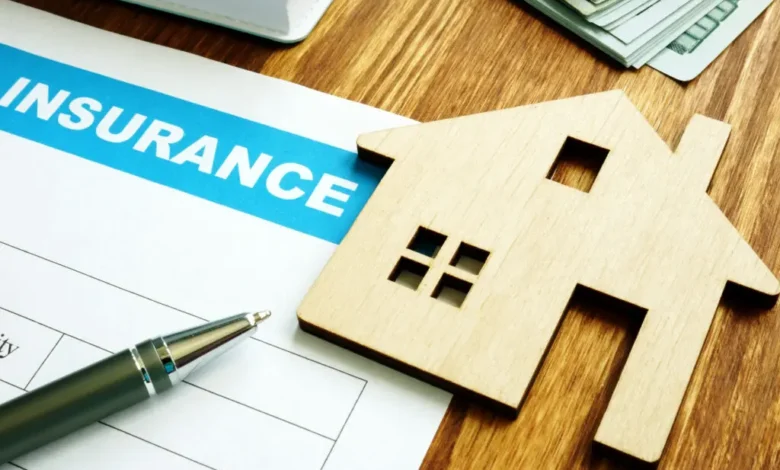Can’t Get Homeowners Insurance Because of Claims in USA?

If you’ve ever faced the frustrating message, “can’t get homeowners insurance because of claims”, you’re not alone. A history of frequent or high-cost homeowners insurance claims can make finding coverage difficult—or expensive. In this guide, we’ll explore why insurers deny coverage, how your claims history affects eligibility, and practical steps to regain access to affordable insurance in the USA.
Why You Might Be Denied Homeowners Insurance
Insurance companies carefully evaluate risk, and a record showing multiple claims or expensive claims can raise red flags. Here’s why insurers may refuse to offer coverage:
- High Number of Previous Claims – Frequent claims (e.g., water damage, theft) suggest a higher likelihood of future losses.
- Large Claim Amounts – One or more high-value claims can label your home a “loss leader.”
- Recent or Severe Losses – Claims for fire, structural damage, or disaster losses are especially concerning.
- Fraudulent or Suspicious Claims – Any indication of misrepresentation may result in instant denial.
- Region-Specific Risk – If you live in a high-risk area (e.g., wildfire, flood zone) and have recent claims, insurers may refuse or price coverage prohibitively.
How Claims History Affects Eligibility and Pricing
A. Claim Frequency and “Loss Runs”
When applying, insurers often request a “loss run” report, which lists all past claims. Those with more than two to three claims in five years can face:
- Non-renewal of policies
- Higher premiums
- Refusal to write new business
B. Risk-Based Premium Pricing
Insurers use your claims history to evaluate your risk profile. That means homeowners with clean records get the best rates, while those with multiple claims pay significantly more.
C. Residual Risk Markets
When private insurers say “can’t get homeowners insurance because of claims”, many homeowners turn to state-backed options, such as:
- California FAIR Plan – Last resort for high-risk or uninsurable homes.
- Florida Citizens – Insures homes not accepted in the private market
These options ensure coverage, but at higher cost and narrower protection.
What You Can Do If You’re Denied Homeowners Insurance
If you feel stuck after hearing “can’t get homeowners insurance because of claims”, here are proactive steps to regain eligibility and reduce premiums:
1. Request Detailed Loss History
Ask your current or former insurer for a loss run report. Reviewing this helps you understand past issues and dispute any inaccuracies.
2. Improve Home Condition
Address damages or vulnerabilities that led to claims:
- Fix leaky roofs, siding, or plumbing
- Install security systems and smoke alarms
- Upgrade electrical and HVAC systems
Proactive home maintenance can reassure insurers and unlock discounts.
3. Take Preventive Measures
Mitigate future risk with:
- Storm-resistant upgrades, like hurricane straps or impact windows
- Water leak detection systems, sump pumps
- Regular pest control and structural upkeep
These improvements often lower premiums and strengthen your application.
4. Consider a Loss Control Inspection
Some insurers or independent inspectors can evaluate your home and certify that it’s a lower risk—helping you stand out when insurers review your profile.
5. Shop Around and Work With Brokers
Different insurers weigh claims history differently. Work with an independent insurance broker who can match your specific risk profile with carriers more likely to accept it.
6. Study State-Run Residual Markets
Explore fair plans or state options if private insurers refuse you:
- California FAIR Plan – Fire coverage with supplemental liability or theft protection needed
- Florida Citizens – Wind/hurricane policies available for coastal areas
- Texas Windstorm Insurance Association for designated risk zones
These aren’t ideal, but they provide a starting point.
7. Reapply After Risk Mitigation
If you’ve improved your home significantly after a claim, ask your insurer for reassessment or new quotes—you might qualify again in 12–18 months.
Understanding Your Rights and Policy Protections
Even if your policy isn’t renewed, you may have consumer rights. Laws vary by state, but common protections include:
- Advance notice of non-renewal (usually 30–90 days)
- Right to appeal through a state insurance regulatory agency
- Access to alternative coverage via other carriers or fair plans
Consult your state’s Department of Insurance for guidance on appeals or complaints.
How to Avoid Future Coverage Problems
To avoid hearing “can’t get homeowners insurance because of claims” again, maintain a clean risk profile:
- Limit unnecessary claims (e.g., minor roof damage under deductible)
- Raise your deductible, so only large losses trigger a claim
- Document home upgrades, especially those adding resilience
- Early disclosure: Be transparent during underwriting or renewal
- Annual policy review: Compare quotes, confirm discounts alive
Real-Life Examples: From Denial to Coverage
Case Study 1: Roof Leaks and Denial
A homeowner in Pennsylvania filed two claims in two years for roof leaks. Renewed coverage was denied. After replacing the roof with impact-resistant shingles, installing gutters, and providing receipts, they received a new quote from another insurer at 20% lower premiums.
Case Study 2: Fire Claim in California
A fire claim in 2021 caused non-renewal. The homeowner installed a sprinkler system and fire-resistant siding, then reapplied 18 months later. A new insurer accepted them at only a 10% surcharge.
When You Might Still Need a Residual Market Plan
Even after mitigating claim issues, some homes may stay uninsurable in the private market:
- Located in wildfire or flood zones with recent claims
- Structural issues or sinkholes with repair delays
- Building code upgrade requirements after a major loss
- Labels as “noninsured” by risk-averse insurers
In those cases, programs like FAIR Plans or Citizens may be the only option—until your home’s risk level improves.
Key Takeaways
| Problem | Solution |
|---|---|
| “Can’t get homeowners insurance because of claims” | Get your loss run, improve your home condition, and shop alternatives |
| High number of claims | Fix known issues, upgrade systems, and obtain certifications for risk reduction |
| High premiums or denial | Use brokers to access special carriers, and pursue inspection-based discounts |
| Limited options | Explore state FAIR Plans or Citizens, then migrate to private coverage once risk is lowered |
| Future claim prevention | Raise deductibles, document upgrades, carefully evaluate claims before filing, and shop annually |
📌 Helpful Resources & Outbound Links
- Insurance Information Institute – Homeowners Insurance FAQ
- National Association of Insurance Commissioners – Consumer Resources
- California FAIR Plan – Last-resort property coverage
- Florida Citizens Property Insurance – For uninsurable coastal homes
- Texas Windstorm Insurance Association – Wind-only coverage in Texas designated regions
Final Thoughts
It’s frustrating to hear “can’t get homeowners insurance because of claims”, but it’s not the end of the road. By understanding insurer concerns, improving your property, and exploring alternative coverage options, you can restore insurability—even at a fair price. With proactive measures, annual reviews, and guided assistance from brokers or state agencies, it’s possible to regain homeowners insurance coverage in the USA—even after a difficult claims history.




